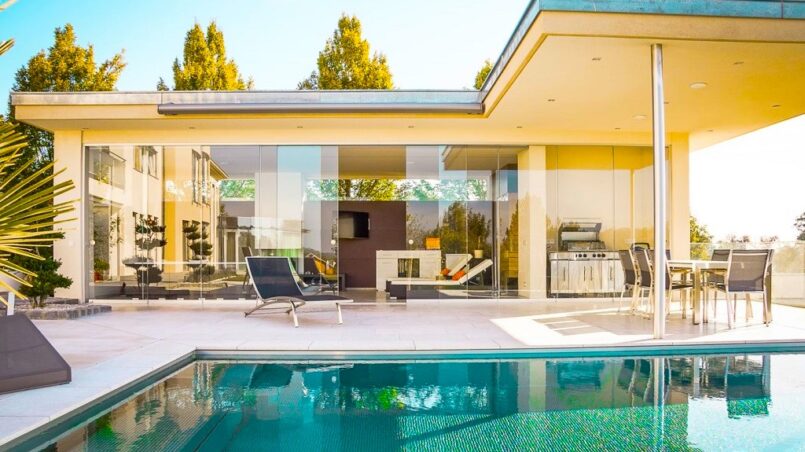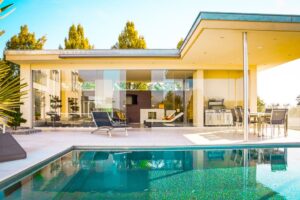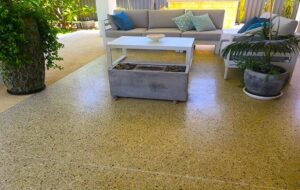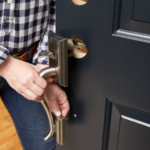Outdoor construction projects frequently utilize concrete as a foundational material due to its blend of durability and adaptability, serving as a cornerstone for structures such as patios, driveways, and pool decks. Within the realm of home improvement, comprehending the distinctions among various concrete types can significantly elevate the visual appeal and lifespan of outdoor areas. With options ranging from traditional ready-mix to specialized variations, each variant offers distinct attributes tailored to specific requirements and aesthetic preferences, ensuring optimal results for diverse project demands. When considering the best concrete types for outdoor use, it’s essential to evaluate factors such as weather resistance, durability, and the intended application to choose the most suitable option for your project.
High-performance concrete, or HPC, is a symbol of progress and innovation in the building sector. While standard ready-mix concrete serves its purpose adequately in various outdoor applications, HPC takes durability and strength to new heights, making it a preferred choice for projects where longevity and reliability are paramount. In this discourse, we will explore the characteristics and benefits of high-performance concrete alongside its counterparts, such as stamped, honed, and lightweight concrete, shedding light on how these materials contribute to the enhancement of outdoor spaces.
High-Performance Concrete
High-performance concrete is engineered to excel in harsh outdoor environments and heavy traffic areas. With superior strength and resilience, it offers enhanced durability against weather elements, abrasion, and chemical attacks. This makes it an ideal choice for commercial pavements, parking lots, and infrastructure projects where frequent use and exposure to the elements necessitate a robust construction material.
Stamped Concrete
Stamped concrete enhances outdoor spaces by mimicking the aesthetic of natural materials such as stone, brick, and wood, thereby adding a decorative touch. By imprinting intricate patterns and textures onto freshly poured concrete, it offers a wide range of design possibilities. Its durability and resilience against weather conditions make it a practical choice for areas like patios, pool decks, and walkways. This versatility in design and longevity renders it a favored option among homeowners and property developers alike. Overall, stamped concrete presents a cost-effective alternative to traditional paving materials without compromising on visual appeal or functionality.
Honed Concrete
Honed concrete offers a sleek and contemporary look, featuring a slip-resistant surface that’s perfect for modern outdoor designs. Its smooth finish adds a sophisticated touch to outdoor areas while providing durability against various weather conditions. This versatility makes it suitable for driveways, pathways, and outdoor seating areas, where both style and functionality are essential. Moreover, honed concrete boasts excellent resistance to UV radiation, fading, and staining, ensuring long-lasting aesthetic appeal for outdoor surfaces. Overall, honed concrete combines style and resilience, making it an excellent choice for enhancing outdoor spaces.
Lightweight Concrete
Lightweight concrete offers a solution to weight-related concerns while ensuring robustness and longevity. Through the inclusion of lightweight aggregates like expanded shale, clay, or perlite, it achieves a lower density while retaining its structural strength. This characteristic makes it particularly well-suited for extensive outdoor projects such as multi-story car parks, bridges, and elevated walkways where weight is a significant factor. Additionally, its insulation properties and resistance to fire contribute to its suitability for outdoor applications, ensuring enhanced safety and comfort across diverse environmental conditions. In essence, lightweight concrete strikes a balance between weight efficiency and performance, making it an attractive choice for various outdoor construction projects.
Ensuring Longevity
Regardless of the concrete type chosen, proper preparation, placement, finishing, and curing procedures are essential for ensuring structural integrity and longevity. Entrusting these processes to trained professionals is crucial to achieving optimal results and minimizing maintenance costs in the long run. By adhering to industry best practices and utilizing high-quality materials, constructors can ensure the longevity and performance of outdoor concrete structures, contributing to the sustainable development of infrastructure and built environments.
Expanding on the Importance of Professional Consultation and Planning
In addition to understanding the various types of concrete available for outdoor projects, it’s essential to highlight the importance of professional consultation and meticulous planning. While DIY approaches may seem tempting, particularly for smaller projects, enlisting the expertise of professionals can ensure optimal results and long-term satisfaction.
Professional contractors bring a wealth of experience and knowledge to the table, guiding homeowners through every step of the renovation process. From initial assessment and design conceptualization to material selection, execution, and maintenance planning, their insights can streamline the project while mitigating potential pitfalls.
Final Thoughts
When selecting concrete for outdoor applications, factors such as durability, strength, aesthetics, maintenance requirements, and cost should all be carefully considered. Investing time in understanding the properties of different concrete types and consulting with professionals can lead to outdoor spaces that not only look great but also stand the test of time. By leveraging professional knowledge and expertise, homeowners can create outdoor environments that are not only visually appealing but also built to withstand the rigors of daily use and weather exposure.








